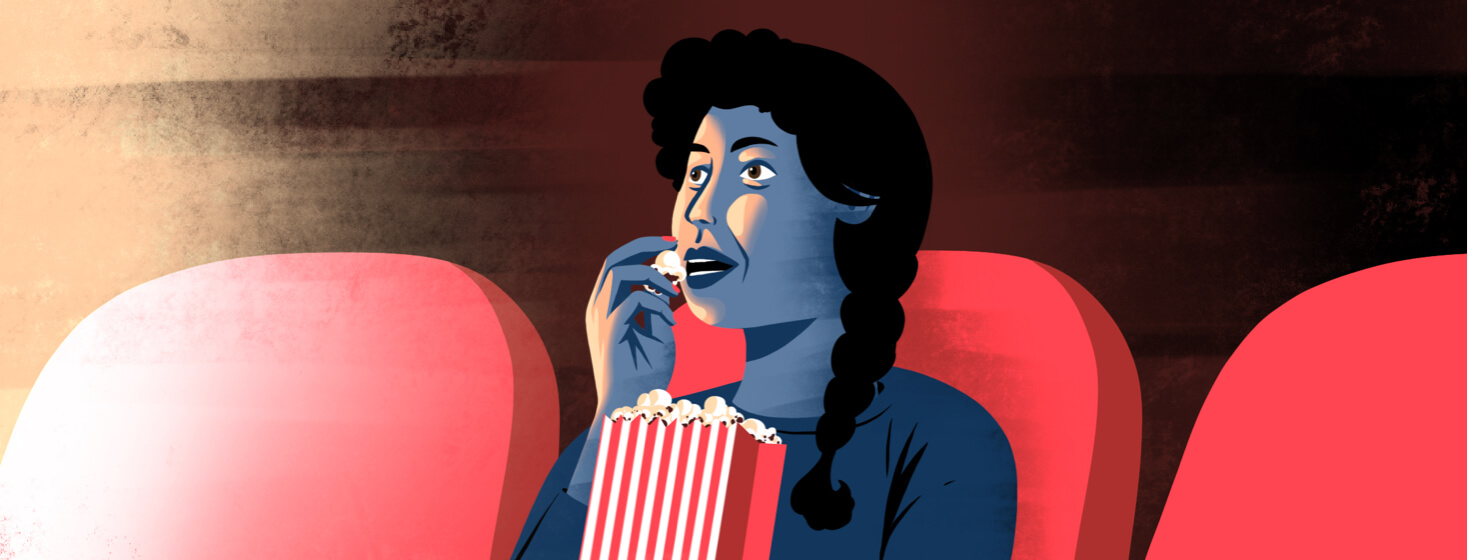Going to Concerts and Movies With Photosensitive Epilepsy
I love outdoor concerts! I have since I was a teenager. Fresh air and music with amazing people, it’s a great combination!
The 2 best outdoor concerts I've ever been to: 1) Minnesota used to have Flogging Molly play at their Irish Festival when I was younger. 2) In Anchorage, Alaska my favorite outdoor concert was 311 at a pizza place called Moose's Tooth. Great pizza and a great band.
In 2013, I experienced my first indoor concert. I went to see Red Hot Chili Peppers with my friends. Since all of the concerts I had been to were outside, I never noticed if they even had light shows. When you're at an indoor concert it's hard to miss.
The concert was amazing! But I did need to make some personal adjustments to have as much fun as my friends did.
Photosensitive epilepsy at concerts
Realizing quickly that the lights were going to be an issue, I put on the sunglasses I brought with me. After about 30 minutes, my friend also gave me her glasses to put over mine. It was an extremely attractive look.
Unfortunately, there were still times when the lights were overwhelming for me. During those times, not even 2 sets of sunglasses made a difference. Luckily, I had my boyfriend (now husband) with me. I would hide my head in his chest, and he would tell me when I could look again. Teamwork is a wonderful thing.
These precautions kept me seizure-free and having fun. I did wish there would have been a large warning of some sort about the lights. That way I (and others like me) could have made a more informed decision about the show. Although at age 24, there's a strong chance fun might have outweighed my health.
Featured Forum
View all responsesCan movies trigger seizures?
Not too long after the concert, I had friends tell me they read someone had a seizure at a movie. They told me that the article stated a specific scene triggered the person's seizure disorder. I honestly didn't go to too many movies in the theater, but I appreciated the warnings and this helped me create a rule. I should check a movie before I go and see it in the theater, just to make sure it is safe for my photosensitivity.
I started paying attention more and I heard that 3D movies might give people with photosensitive epilepsy seizures. Luckily, research and an article from the scientific journal "Seizure" eased my mind. The article explained that 2D versus 3D movies don't truly matter. The issue lies in specific scenes that can trigger photosensitive epilepsy.1
Now back to my genius rule to verify if a movie is safe. It's a simple rule and verifying is just a Google question away. I'm a genius! Well, I don't follow the rule often. I buy the ticket and get to the theater and then realize I didn't check out the movie ahead of time. Then look around for some sort of sign and give the attendant my ticket.
Look for warnings about photosensitivity
In December 2019, AMC got my business for life! Typically, it's one specific location as well. I went to Star Wars: Episode IX – The Rise of Skywalker. I again forgot to follow my rule. I remember we had bought our tickets online and then we were about to get our tickets checked. My husband and I saw a large warning sign about the potential dangers for people who are sensitive to flashing lights. I was so grateful.
I want to acknowledge that there are probably many other theaters that gave warnings for this movie as well. What impressed me is how the sign was displayed. There was no way to give your ticket to the attendant without seeing the standing sign. I now know that if I forget my rule, AMC won't.
I love that it is becoming more and more common for companies to put the health of their customers and fans before their bottom line. People with photosensitivity are being acknowledged and cared for.

Join the conversation